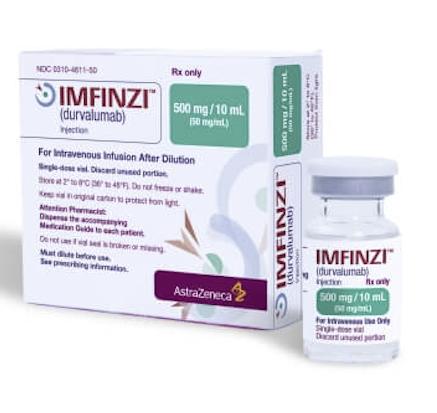Wilmington, Del. — AstraZeneca’s immunotherapy drug IMFINZI® (durvalumab) has shown a statistically significant and clinically meaningful improvement in disease-free survival for patients with high-risk non-muscle-invasive bladder cancer (NMIBC), according to results from the Phase III POTOMAC trial.
The study evaluated IMFINZI in combination with the current standard-of-care Bacillus Calmette-Guérin (BCG) induction and maintenance therapy. Patients who received one year of IMFINZI alongside BCG therapy experienced a longer period without disease recurrence or progression compared to those who received BCG therapy alone.
“These exciting data show that adding one year of durvalumab to the current standard treatment significantly extends the time patients live without high-risk disease recurrence or progression,” said Dr. Maria De Santis, Head of the Interdisciplinary Uro-Oncology Section at Charité Universitätsmedizin Berlin and a principal investigator in the trial. She noted that despite curative intent, up to 80 percent of NMIBC patients experience recurrence, and nearly half may eventually require radical surgery to remove the bladder.
Although the POTOMAC trial was not designed to statistically assess overall survival, descriptive analysis showed no negative impact on patient outcomes. The combination treatment’s safety profile remained consistent with known data for both IMFINZI and BCG, with no new safety concerns reported. Importantly, IMFINZI did not interfere with patients’ ability to complete the BCG regimen.
AstraZeneca Chief Medical Officer Dr. Cristian Massacesi said the trial results build on prior success with IMFINZI in the NIAGARA trial, which led to regulatory approvals for use in muscle-invasive bladder cancer. “These results represent a significant advance that could extend the benefits of immunotherapy to more patients with early-stage bladder cancer,” he said.
While the primary endpoint was met in the group receiving IMFINZI with both BCG induction and maintenance therapy, a second experimental group receiving IMFINZI with BCG induction only did not show significant improvement in disease-free survival.
The full data from the POTOMAC trial will be presented at an upcoming medical conference and submitted to global health authorities. IMFINZI continues to be studied across a wide spectrum of bladder cancer stages, including in trials for patients ineligible for cisplatin-based therapy and those with advanced or metastatic disease.


